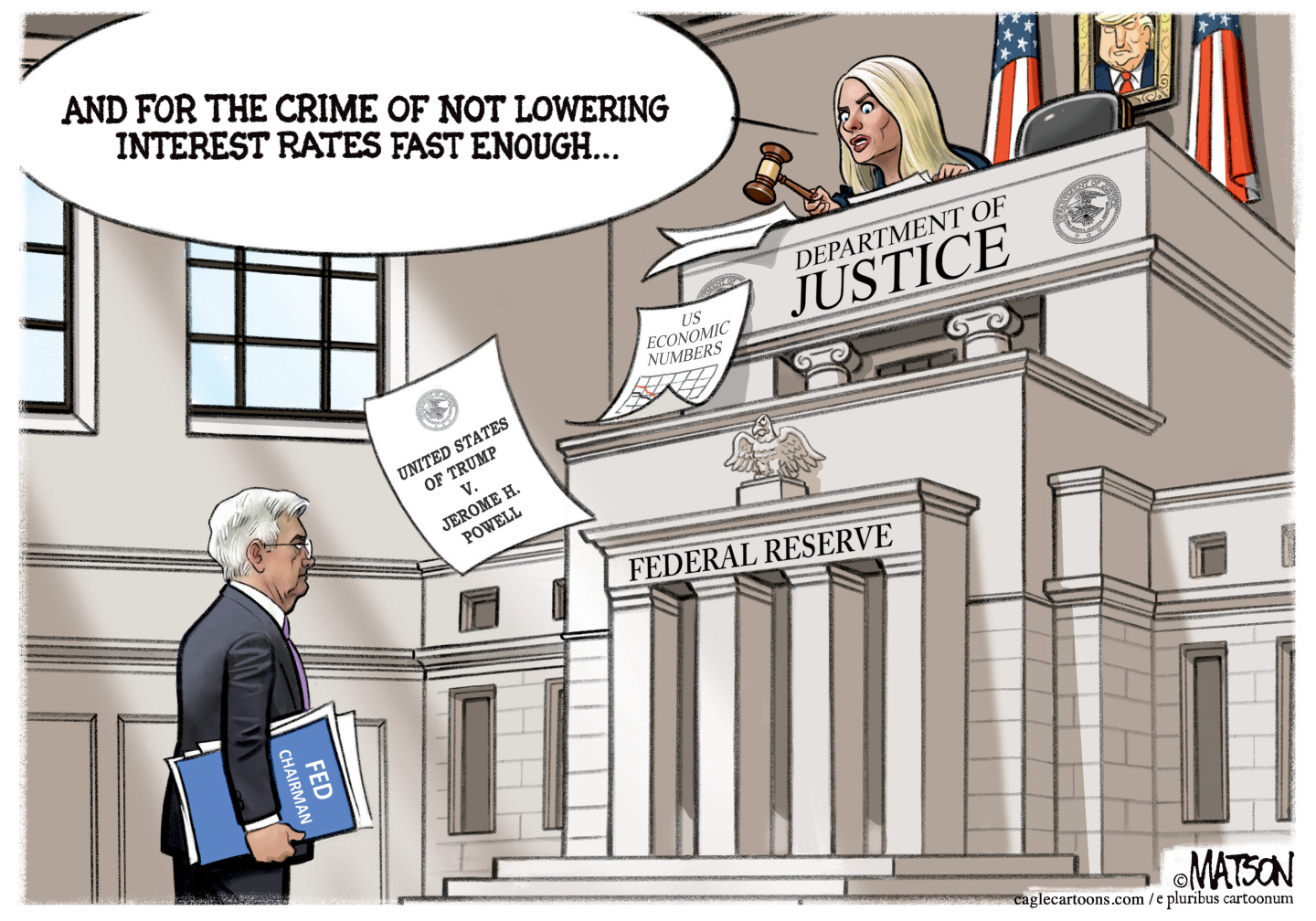Why the GOP's threat to shut down the government over Planned Parenthood will fail
Republicans have tried this trick before — without much success


So here we are again: Republicans want to make a policy change, but since doing so will be difficult through the ordinary legislative process, they are threatening to shut down the government to get what they want.
This time it's about Planned Parenthood, long a target of conservative loathing. Galvanized by selectively edited videos made by conservative activists trying to make it seem as though the organization is profiting from the sale of fetal tissue, Republicans in Congress are now trying (as they have before) to "defund" Planned Parenthood. The White House says it will veto any budget bill that does that.
In response, at least some conservatives have reverted to a time-worn tactic: Shutdown! Ted Cruz says if that is what it takes to eliminate funding for Planned Parenthood, so be it. Some of his allies in the House seem to agree. Conservative pundit Erick Erickson demands, "If Republicans are not willing to make this their hill to die on...the Republican Party needs to be shut down."
The Week
Escape your echo chamber. Get the facts behind the news, plus analysis from multiple perspectives.

Sign up for The Week's Free Newsletters
From our morning news briefing to a weekly Good News Newsletter, get the best of The Week delivered directly to your inbox.
From our morning news briefing to a weekly Good News Newsletter, get the best of The Week delivered directly to your inbox.
For the record, most of the money Planned Parenthood receives from the federal government comes from reimbursement for health care services through Medicaid. Precisely zero goes to abortion services; by law, no federal funds can go to abortions. So when Republicans say they want to "defund" Planned Parenthood, what they're talking about is taking away medical services — breast cancer screenings and the like — from poor women.
I'm not going to go too deeply into the videos, other than to say that nothing in them shows that the organization did anything illegal. The worst anyone has been able to say is that the "tone" used by Planned Parenthood officials was callous. You can object to fetal tissue research if you like, even though it's done with the consent of patients and can yield valuable medical insights, but there's no evidence that Planned Parenthood isn't complying with the laws that cover how that tissue can be used.
Until Barack Obama became president, most government shutdowns happened for one reason: because Congress and the president couldn't agree on a budget. Sometimes the issues were broad, like cuts to domestic spending, and sometimes they were more specific. But they were usually connected in some rational way to the perceived necessity for a shutdown, in that there was disagreement on how to spend the money that will keep the government operating.
But Republicans in the Obama era have been nothing if not creative thinkers when it comes to policy procedures and norms. And in this area, their innovation was to say, "We have a policy disagreement with the other side, but we can't get our way through the normal channels. So how about if we shut down the government until we get what we want?"
A free daily email with the biggest news stories of the day – and the best features from TheWeek.com
There's one important fact about this threat that you'd think Republicans would have learned by now: It always fails. The public doesn't rally around the shutdowners' cause, because it violates a basic sense of how policy-making ought to operate. Congress can bicker and fight, but the way it makes decisions is that legislators vote on things, and the side with more votes wins (except for proposals that are filibustered, but that's a different story), subject to the presidential veto. If you lose through that process, you've lost, period. Even if you were right on the merits, the system's rules are longstanding and familiar enough that they seem fair, since everyone understands the rules and agrees to live under them.
But relying on a shutdown is like a baseball team that's trailing at the start of the ninth inning, so they hide all the balls and say they won't return them until they're declared the victor. It just doesn't seem right.
And it isn't just that Republicans can't get enough public support for the shutdowns — more importantly, they don't actually get what they want. In 2013, they shut down the government in an attempt to repeal the Affordable Care Act. The Affordable Care Act, you may have noticed, is still around. In 2014, they nearly shut down the government in an attempt to stop Obama's executive actions on immigration. That failed there, too (though some of those actions have been held up in the courts).
It should be noted that the congressional GOP leadership is smart enough to say they're not interested in another shutdown psychodrama. But if they're in a tough spot, besieged by their more conservative members — not to mention outside groups and pundits — there's no denying the part they've played in making this a regular demand of conservatives. It was the congressional leaders who devised the strategy of opposing Barack Obama on everything and filibustering every bill of any consequence. They've happily gone along with the hysteria on the right that says that Obama isn't just a president they disagree with, but an enemy of America who seeks to destroy everything we hold dear. They've encouraged the belief that compromise is always, and by definition, an act of betrayal.
Given all that, is it any surprise that whenever a new issue comes up, at least some on the right think it's a hill worth dying on? Shutting down the government might be doomed to fail, but I suppose it feels like fighting.
Paul Waldman is a senior writer with The American Prospect magazine and a blogger for The Washington Post. His writing has appeared in dozens of newspapers, magazines, and web sites, and he is the author or co-author of four books on media and politics.
-
 Why Greenland’s natural resources are nearly impossible to mine
Why Greenland’s natural resources are nearly impossible to mineThe Explainer The country’s natural landscape makes the task extremely difficult
-
 The Week contest: Post-surgery Spanish
The Week contest: Post-surgery SpanishPuzzles and Quizzes
-
 Political cartoons for January 14
Political cartoons for January 14Cartoons Wednesday’s political cartoons include Jerome Powell's rap sheet, holiday bill blues, and more
-
 The billionaires’ wealth tax: a catastrophe for California?
The billionaires’ wealth tax: a catastrophe for California?Talking Point Peter Thiel and Larry Page preparing to change state residency
-
 Bari Weiss’ ‘60 Minutes’ scandal is about more than one report
Bari Weiss’ ‘60 Minutes’ scandal is about more than one reportIN THE SPOTLIGHT By blocking an approved segment on a controversial prison holding US deportees in El Salvador, the editor-in-chief of CBS News has become the main story
-
 Has Zohran Mamdani shown the Democrats how to win again?
Has Zohran Mamdani shown the Democrats how to win again?Today’s Big Question New York City mayoral election touted as victory for left-wing populists but moderate centrist wins elsewhere present more complex path for Democratic Party
-
 Millions turn out for anti-Trump ‘No Kings’ rallies
Millions turn out for anti-Trump ‘No Kings’ ralliesSpeed Read An estimated 7 million people participated, 2 million more than at the first ‘No Kings’ protest in June
-
 Ghislaine Maxwell: angling for a Trump pardon
Ghislaine Maxwell: angling for a Trump pardonTalking Point Convicted sex trafficker's testimony could shed new light on president's links to Jeffrey Epstein
-
 The last words and final moments of 40 presidents
The last words and final moments of 40 presidentsThe Explainer Some are eloquent quotes worthy of the holders of the highest office in the nation, and others... aren't
-
 The JFK files: the truth at last?
The JFK files: the truth at last?In The Spotlight More than 64,000 previously classified documents relating the 1963 assassination of John F. Kennedy have been released by the Trump administration
-
 'Seriously, not literally': how should the world take Donald Trump?
'Seriously, not literally': how should the world take Donald Trump?Today's big question White House rhetoric and reality look likely to become increasingly blurred
